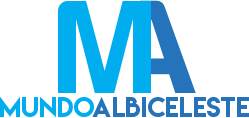-
MacMillan McMillan posted an update 4 years ago
If you frequently surf the Net, you’ll have probably discovered countless ads and web pages promising you will earn incredible sums without or very low effort in trade for paying a little sum to join their programs. Maybe many of them were so promising that you truly finished up paying their affiliation fee, only to learn, hours or months after, they’d never provide you with the return they promised.
Spotting an internet scam can be hard at first, but once you have understood the mechanisms, you will see the schemes utilized by scammers are always the same, only with small occasional differences. This short article lists the main forms of Internet scam, to create it easier that you can spot them and immediately avoid them (and possibly do something to alert authorities) when you come across one.
IDENTITY THEFT
The term ‘identity theft’ commonly refers to the act of acquiring personal information about you, that may be later be used without your permission. Identity theft schemes include:
a) Stolen Credit Card
Credit card information can be obtained in many ways, the easiest being copying information from retailers, either online or offline. There were
какой сайт гидры reported situations of crackers obtaining huge levels of charge card information from companies’ databases. Despite the claims of the credit card industry and merchants, using credit cards for online purchases isn’t totally secure and still carries a certain amount of risk. Even the hence called "secure transactions" aren’t fully trushworthy, since the information should be decrypted to plain text in order for it to be processed. That is among the points where credit card information is typically stolen.b) Getting Wire Transfer Info
Some fraudsters strategy merchants asking them for large quotes. Once they quickly accept the merchant’s quotation, they require wire transfer facts to send payment. Instantly, they use online test issuing systems as Qchex that require nothing but a working email, to produce checks that they use to pay other merchants or just send associates to cash them.
MONEY TRANSFERS FRAUD
This type of Fraud consists of an employment offer to greatly help transfer money to a foreign company, supposedly because it costs too much to do it through other methods (that is usually not the case). Other times, you are sent an e-mail from the total stranger stating he acquired a sign in a foreign benefit he can’t cash, proclaiming to offer you to cash ‘1000’ at his place and send him back ‘400’ beforehand, keeping the rest — where in fact the check is actually a fake. Like schemes are easy to spot because they’re highly unlikely in true to life, but unluckily some even now fall for them.
PHISHING
The term ‘phishing’ refers to the act of trying to acquire sensitive details like passwords or charge card numbers, often via email. A typical phishing scheme is to send an e-mail pretending to function as bank or money-related service used by you, trying to get an individual to sign in. The links in the e-mail doesn’t actually bring to the original vendor site, but to a clone site operator by the scammer, who’s recording all fields entered when logging in the website. One of the common types of phising involves e-Bay related communications.
Home Activity

